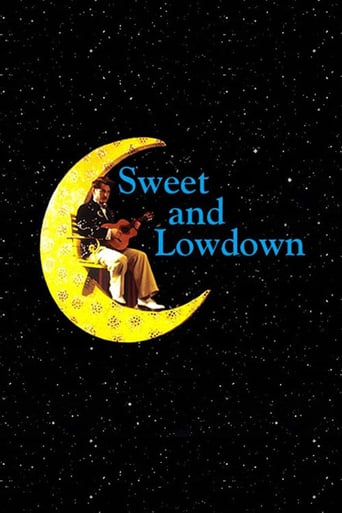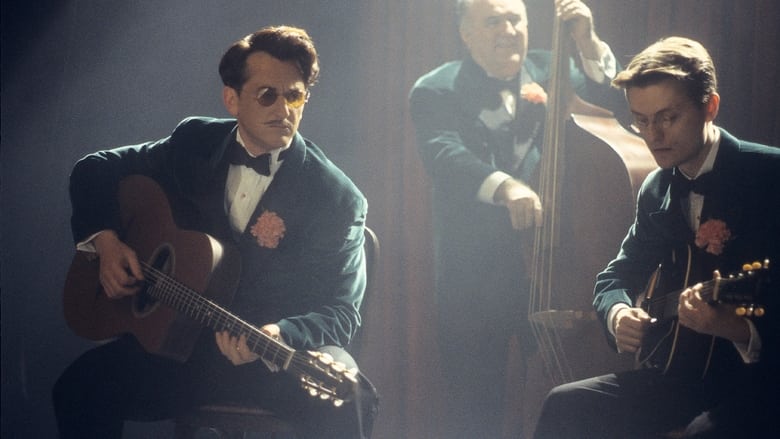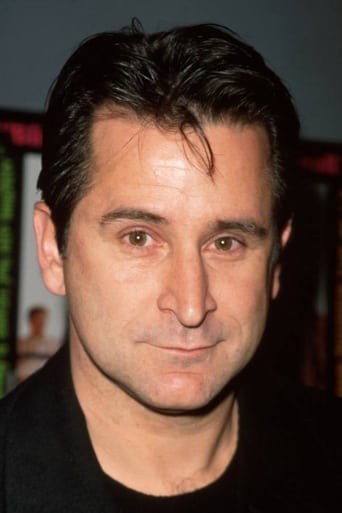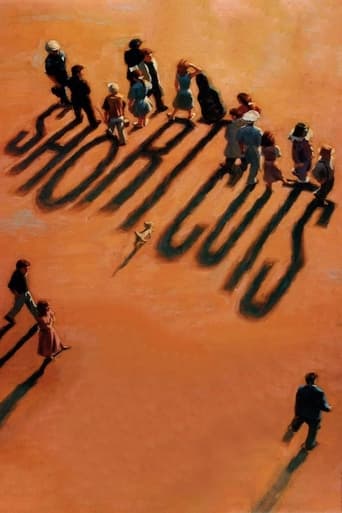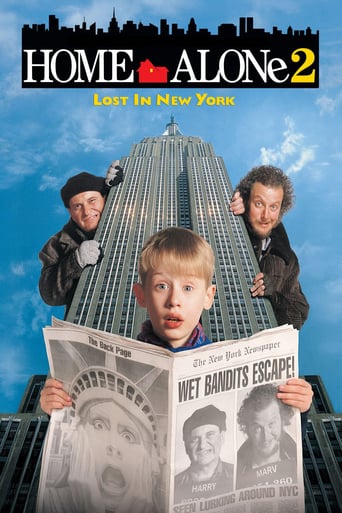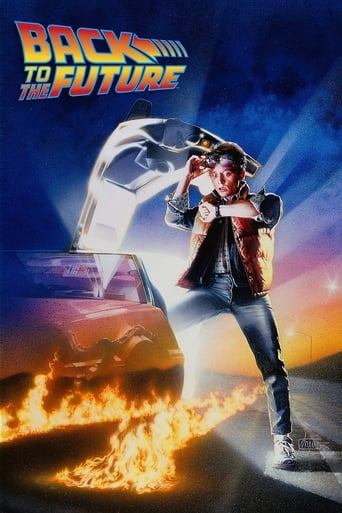Sweet and Lowdown (1999)
In the 1930s, jazz guitarist Emmet Ray idolizes Django Reinhardt, faces gangsters and falls in love with a mute woman.
Watch Trailer
Cast


Similar titles
Reviews
Powerful
Please don't spend money on this.
Fresh and Exciting
I wanted to like it more than I actually did... But much of the humor totally escaped me and I walked out only mildly impressed.
The old cliché of a person being great artist but a terrible human being is certainly true for Sean Penn's fictional Emmet Ray, self-dubbed the second best guitarist in the world. Why he attracts the attention of more than one female is beyond me; Thurman's Blanche is drawn to that rough, unhemmed quality about him like writers are drawn to trouble subjects because they make for great stories. And Allen too has made this little misstep - there is nigh a thing redeemable about Ray but for his soulful jazz guitar, which must be exactly what Allen finds himself so eager to capture. The framing device is an unnecessary one, too clever for its own right; Allen and other jazz alumni are filmed as talking heads recounting the great life of Emmet Ray with a wistfulness for his mastery...there is a subjectivity quality to their stories of course, but this seems like an artificial method of further mystifying the great enigma that was Ray. A pity then that Allen's script is as relatively straightforward as it is. He did not often delve as dark and deep as Interiors did, and here even the most emotionally dramatic scenes are smothered by the incessant cheery jazz as the backing track to Ray's life. No woman would ever be secondary to his music, and it rings so true. Not even such an innocent, demure maiden like Hattie, as Samantha Morton in one of the performances of her time. She winds back the clock to the times of pantomime and silent film, and in each wide, uncontrollably smile, and each smothered tear, has brought us such a defined and memorable character without saying a word. Allen almost never has to bring the camera closer; her body language works furiously in place of her mouth, whether it is enthusiastically replacing a flat tire for the prize of hearing one more tune from Ray, or the way her adorable chews indicate her satisfaction, and in perhaps the best scene of the film, the way she wordlessly convinces Ray to let her accompany him on his trip. Her eyes water, and her entire face crumples up, and Penn rambles and rambles...and relents, even his emotional defense broken down.In a similar scene he does the same thing and humorously forbids Hattie from giving him a birthday present, before eagerly allowing it once he sees that it is something he desires. This is one of his many vices of course - a sort of contradictive possessiveness and consumerist hunger for objects that don't contribute to his music at all, but which he wants nevertheless. His ego has convinced him that he wants these things, and that no woman would ever want to leave him, and that his musical performance is beyond reproach. Allen, naturally, adds a comic layer to this furiousness and decadence - see how Penn dangles from the model moon and awkwardly untangle himself and let the music come to his fingers. And then a smash cut to later where he is literally smashing and burning the offender. How dare it intrude on his performance. But most of all the character is destructive, and Allen has somewhat obscured this fact. Django Reinhardt emerges as this huge, imposing figure within the film, dogging each of Ray's steps, even as he is never physically seen. How would Django react to seeing the great Emmet Ray? Surely he would not faint. Would he even recognise him? As Allen's faux-documentary style intends, perhaps not.
In the core of this movie is the fictive character of Emmet Ray who says of himself that he is the 2nd best guitarist in the world right after Django Reinhardt (who actually lived). The movie tackles some other subjects but focuses on Emmet and his problems. It works quite well because Sean Penn gives a terrific performance. The movie also portrays the 30's quite well and it got some good cinematography (like most of Woody's movies).Woody pays homage to Bergman's The Passion of Anna with the interviews he uses to narrate some of the story and express some thoughts from another point of view. The interviews are a very minor part of the movie, but a fun (and unique) little element. The movie is also a homage to Fellini's La Strada. The 2 main characters in Sweet and Lowdown resemble the two main characters in La Strada so if you enjoyed Sweet and Lowdown you might find these two movies interesting (it probably also works the other way around).If you haven't seen it yet here's my conclusion: It's not a masterpiece (far from), but it's a good movie that should especially be a treat for musicians, other artists and Allen or Penn fans. If you like character drama and don't mind the comedic touch this is a movie for you. If you're not that interested in character dramas you won't hate it but it's not a movie I would highly recommend to you.
Woody Allen's fictionalized "documentary" about a famous jazz guitarist's rise and fall in Depression-era America.This plays out like one of those biopics about famous musicians that all blend into one another because of their sameness ("Ray," "Walk the Line"), the difference here being that Sean Penn's Emmet Ray is a fictional creation, and Allen is lampooning the very conventions that make those other movies so boring.Penn displays a gift for comedy he hadn't exercised since "Fast Times at Ridgemont High," while Samantha Morton made her first major appearance in front of movie audiences as his mute, long-suffering and ever-dependable wife.This isn't one of my favorite Allen comedies, but it's a pretty good movie.Grade: B
The story is told about the now-defunct British humorous magazine "Punch" that, when someone complained to the editor that "Punch is not as funny as it used to be," he replied "It never was." The same could be said of Woody Allen. For years the received criticism of every new Woody film has been "Woody is not as funny as he used to be". He never was. Exactly when he was funny varies according to the particular tastes of the critic in question. Some will tell you that he has not been funny since "Hannah and Her Sisters", others that he has done nothing worthwhile since "Manhattan". There are probably even some purists who will insist that nothing in his later work can compare to early slapstick comedies like "Sleeper" or "Bananas".I myself have never been an adherent of the "Woody is not as funny as he used to be" school of thought, for two reasons. Firstly, not all his films from his supposed golden age in the seventies and eighties were equally good; several of the sketches in "Everything You Always Wanted to Know About Sex .", for example, today come across as frankly embarrassing. Secondly, by no means all of his films from the 1990s and the 2000s are weak; he has made a number of good films during this period, of which "Sweet and Lowdown" is one of the best.In structure the film is a mock-documentary about Emmett Ray, a jazz guitarist from the 1930s. Ray is a fictitious character, although the spoof is so well done that it becomes entirely credible. (The day after I first saw this in the cinema I went to the library to check out what it said about him in an encyclopaedia of jazz. Needless to say, I did not find his entry). Scenes from Ray's life are intercut with shots of jazz experts, including Allen himself, being interviewed about Ray's music. To add to the idea that this is a non-fiction documentary, the various commentators give differing versions of anecdotes about Ray or differing interpretations of his life.Allen, of course, is well known for his love of jazz, and it would appear that he first conceived the ambition to make a film about a jazz musician in the early seventies, but this did not come to fruition until 1999. He originally planned to play the part of Emmet Ray himself, but unless he has a much wider range as an actor than he has hitherto shown it was a wise decision to cast Sean Penn rather than himself in the role, as Ray is far from being a typical Woody character. For a start, he is neither Jewish nor a New Yorker. Nor is he a nervous, angst-ridden, self-deprecating intellectual- indeed, he is far from being an intellectual at all. Great artists are not always great men, and for all his brilliance as a performer Ray is a deeply flawed individual- crude, boorish, an alcoholic and a kleptomaniac. Besides his music, he has a sideline as a ponce running a stable of prostitutes. His idea of a hobby is to go down to the local rubbish dump and shoot rats, even inviting his girlfriends to join him in this dubious sport. Obviously the last of the great romantics.Ray is also conceited about his talent, proclaiming himself to be the second best guitarist in the world after his idol Django Reinhardt (who was of course a real person). Ray's relationship to Reinhardt, whom he does not know personally, is a complicated mixture of jealousy and hero-worship; he adores Reinhardt's music, but also hopes to be able to better it. Ray's one redeeming quality is his passionate dedication to his art, and Penn (in an excellent performance) is able to suggest all the many facets of his personality and to make him someone who is not totally unsympathetic despite his many faults.The other really excellent performance is that of the young Samantha Morton as Ray's sweet, innocent girlfriend Hattie. Hattie is mute, which means that Morton could only express her character through gestures and facial expressions. It is a performance similar to that of Marlee Matlin as the deaf-mute heroine of "Children of a Lesser God", although with the difference that Hattie, although mute, is not deaf. Uma Thurman is also good as Ray's wife Blanche, an upper-class socialite who marries Ray out of what might be called "nostalgie de la boue". She is attracted to him precisely because he is crude and uncultured with dubious personal habits- they first meet when she catches him stealing an ornament at a party.There is plenty of humour in the film, much of it centred upon Ray's sense of self-importance, such as the slapstick sequence about his attempt to make a stage entrance seated on a wooden crescent moon lowered down from above. It is not, however, a pure comedy, but also a character study and a film about the power of music to transform even the most mundane of lives. I am by no means a great jazz buff, but I was enthralled by the beauty of the music in this film (performed by the guitarist Howard Alden). This is one of Woody's most impressive films from the last two decades. 8/10

